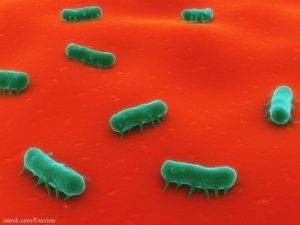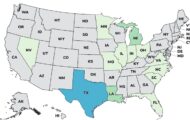The FDA has released an assessment factors that potentially contributed to the 2012 cantaloupe Salmonella outbreak linked to Chamberlain Farms in Indiana. The outbreak, which was announced in August, sickened 261 people in 24 states. Ninety four people were hospitalized, three of them died.
 Two stains of Salmonella were involved in the outbreak. A total of 228 people were sickened by Salmonella Typhimurium, and 33 were sickened by Salmonella Newport.
Two stains of Salmonella were involved in the outbreak. A total of 228 people were sickened by Salmonella Typhimurium, and 33 were sickened by Salmonella Newport.
The FDA took environmental samples of soil, wild animal excreta, well water, pooling water on field perimeters, drainage ditch water, and cantaloupe.
Salmonella was found in soil samples taken form all four growing areas, in the packing house and on equipment. To see details of the FDA’s findings click here.
Based on the findings the FDA makes the following recommendations to growers. Assess produce growing practices and procedures to control, reduce or eliminate the introduction of Salmonella and other pathogens. Follow good agricultural practices for handling animal manure to reduce the introduction of microbial hazards to produce. Consider scheduling application of raw manure on adjacent fields to maximize the time between manure application to those fields and harvest of produce. Establish field plans where the fields closest to produce crops are planted with crops that do not receive raw manure. Consider barriers or physical containment to secure manure storage or treatment areas where contamination from runoff, leaching, or wind spread is a concern. Assess produce packinghouse and equipment design to ensure adequately cleanable surfaces. Ensure that water is of sufficient microbial quality for its intended use. Assess and minimize opportunities for introduction of Salmonella and other pathogens in packinghouses.
Implement regular cleaning and sanitizing procedures. Verify the efficacy of cleaning and sanitizing procedures. Evaluate the processes and equipment used in packing operations to assure they do not contribute to fresh produce contamination. Implement melon handling operations that minimize the incidence of melon surface moisture. Develop and maintain written food safety plans and SOPs for areas such as handling and storage practices, field, facility and vehicle cleaning and sanitation, and employee training programs. Maintain records. Record information such as the date and time, name of person(s) who completed the record.




